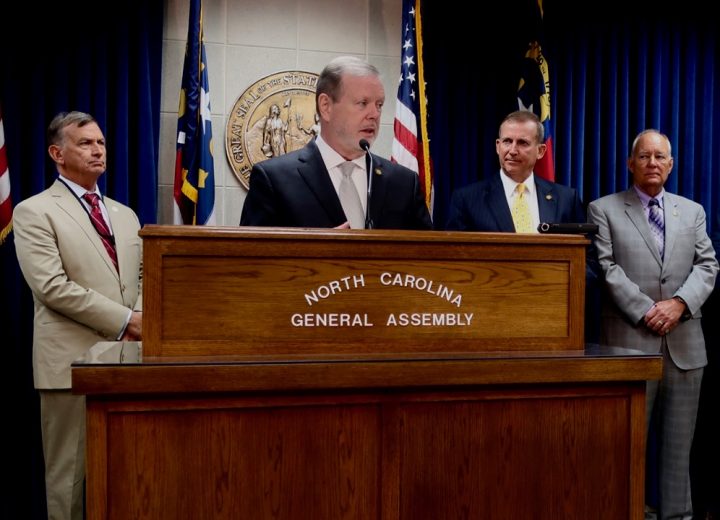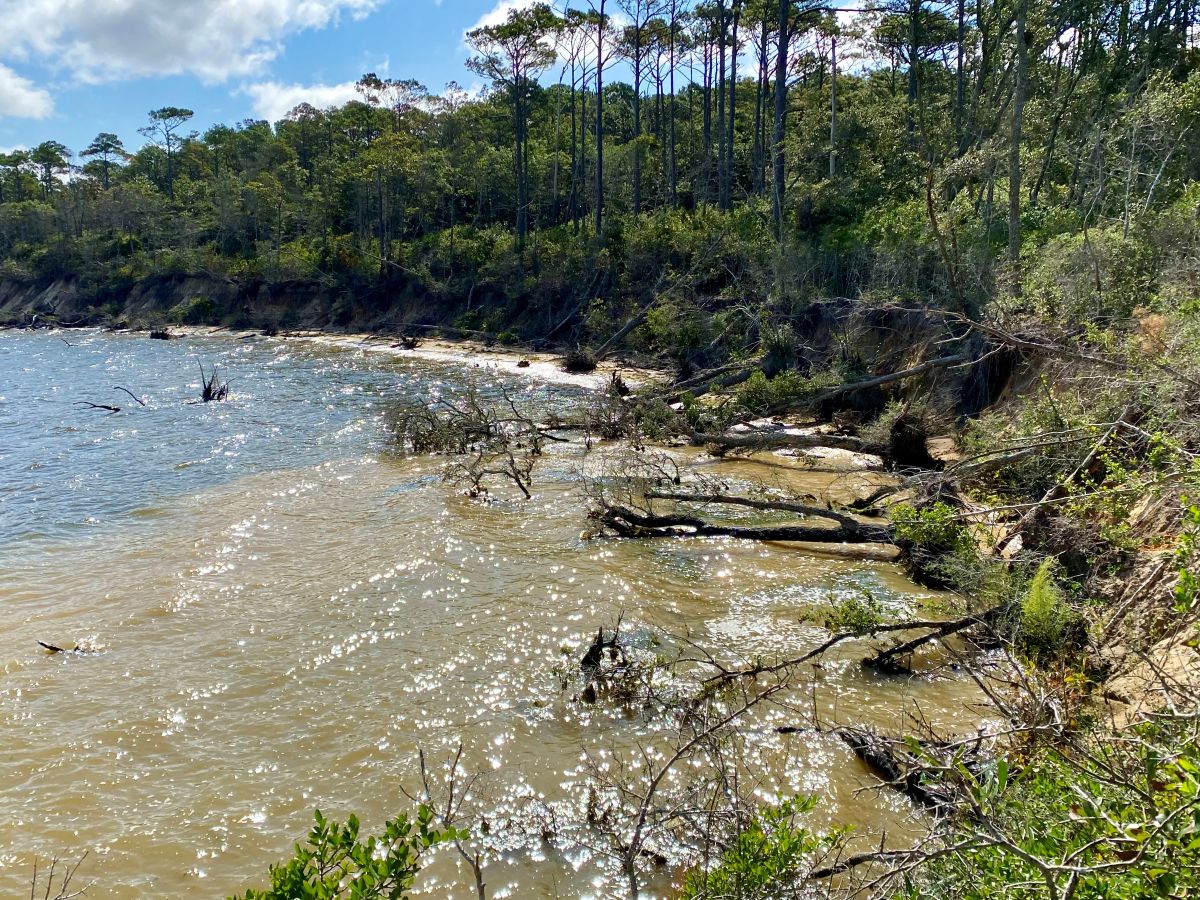
RALEIGH – With a lengthy list of unresolved bills and a lingering stalemate over a final budget, North Carolina General Assembly leaders say they plan a monthlong push to finish up work in a long session that has certainly lived up to its name.
It has been 15 weeks since the legislature passed the state budget bill and saw Gov. Roy Cooper return it a day later bearing a veto stamp.
Supporter Spotlight
After more than two months, the House overrode the veto on Sept. 11 in a lopsided vote that Democrats said they were promised would not happen that day. The action sent the budget bill back to the Senate where a much stronger GOP majority only needs one Democrat’s vote for an override.
In a press conference Tuesday, Senate President Pro Tem Phil Berger said the chamber’s rules require 24-hour notice before for a vote, so he didn’t expect any confusion about whether a vote is coming or not.
Berger said rather than an override, he would prefer to reach a compromise with Senate Democrats on areas in disagreement.
Berger said the Senate intends to adjourn by Oct. 31 and would continue to chip away at the impasse, passing agreed-upon items in the budget.
Earlier this month, both chambers started passing so-called “mini budgets” that were drawn almost verbatim from the vetoed budget bill.
Supporter Spotlight
The batch of mini budgets, which included an extensive section on disaster recovery spending, have passed with wide majorities and been signed into law by Cooper. But those bills avoided some of the thornier disagreements between the administration and the legislature as well as disagreements between the two chambers themselves.
Berger said the next round of bills would concentrate on numerous special provisions in the budget as well as department spending, starting with the Department of Transportation.
The major hitch continues to be Medicaid expansion, but the governor has outlined about a dozen areas where there’s disagreement. They include the level of additional spending to catch up water and sewer infrastructure backlogs and funding for the Department of Environmental Quality for personnel and equipment to improve water quality testing and regulation of emerging contaminants.
PFAS, beach funds, rate legislation moves
Coming back to work after a two-week break, this week the House passed a wide-ranging bill with provisions dealing with emerging contaminants, unsustainable water and sewer systems and spending flexibility for the coastal disaster mitigation fund.
The section of the bill dealing with the use of firefighting foam grew out of earlier legislation aimed at banning the use of firefighting foam containing per- and polyfluoroalkyl substances.
That legislation, sponsored by Rep. Pricey Harrison, D-Guilford, hit a wall over objections from manufacturers and industrial users, as did companion legislation in the Senate and a proposal by Sen. Harper Peterson, D-New Hanover, for a Cape Fear region task force to analyze PFAS and other emerging contaminants and increase alternative water system requirements in PFAS-contaminated areas.
The provision passed Wednesday mandates a study by the North Carolina Policy Collaboratory that would include a statewide inventory of firefighting foam and a way to determine if stockpiles are being stored correctly and, if stocks are out of date, how they can be collected and disposed of. The study is due April 1, 2020.
During floor debate, Harrison said she hoped the study would be the first step toward an eventual ban on the use of the foams that have caused contamination in several local water supplies around the state. Harrison said she would like to see the legislature take up the ban again in the short session.

“I do want to note that we’ve got documented firefighting foam contamination in many of the water supplies throughout this state, including Charlotte, Stanly County, Greensboro, Seymour Johnson and Goldsboro and Atlantic. This is a real problem, ” Harrison told her colleagues. “I do hope we can spend some serious time with this in the short session.”
The omnibus legislation also includes a provision giving DEQ greater flexibility over $18.5 million appropriated to the Coastal Storm Damage Mitigation Fund, which is being used for state matching funds for beach repair and renourishment projects started after Hurricane Florence.
The provisions would allow the funds to be used for damage from any major disaster after Jan. 1, 2016.
The scope of the projects is limited to the mitigation and remediation of storm damage to ocean beaches and dune systems. A staff analysis last month said that would rule out any use of the funds for terminal groin projects, which by law cannot be paid for with state money.
The legislation also allows DEQ to use some of the funds going to a beach and dredging needs assessment for developing a dredge materials management plan for disposal in state waters outside of the current federal disposal areas.
The omnibus bill also builds on prior legislation aimed at struggling water and wastewater systems. During this session, legislators have been fine tuning a carrot-and-stick approach that could require mergers or takeovers of small, unsustainable systems in exchange for state funding for repairs and upgrades.
The new legislation would allow the Local Government Commission to tap the state’s Wastewater Reserve or Drinking Water Reserve funds for emergency operating funds.
The LGC recently took over operations of a small water system in Rutherford County and the town of Eureka in Wayne County, which could no longer cover the costs of operating its wastewater system.
The LGC has identified dozens of struggling water and wastewater system statewide and, along with DEQ, is working with Eureka and its neighbors to develop a model for regionalization of smaller systems that can’t keep up with maintenance or have lost too many customers to remain viable.
Also this week, the Senate passed a new version of a bill backed by Duke Energy that includes a controversial provision to allow the state’s Utilities Commission to set electricity rates on a multi-year basis rather than the current year-to-year schedule.
NCDOT budget
On Thursday the Senate passed the first departmental spending plan of the budget impasse, sending the North Carolina Department of Transportation provisions to the House after a 44-0 vote.
The bill includes $11 million over the next two years to raise the power lines over the Cape Fear River near the North Carolina Port of Wilmington to accommodate larger vessels. The project would raise the lines by 41 feet to create an overall clearance of 212 feet.
The plan also includes $1 million to cover this year’s cost for leasing a passenger ferry for the Hatteras to Ocracoke Village crossing. A ferry was leased earlier this year to provide the service originally intended for a new state ferry that’s still being built in Swansboro and delayed by construction and safety inspection problems. The builder, U.S. Workboats, recently sued NCDOT alleging breach of contract and defamation.
NCDOT’s Ferry Division would also receive $833,000 for repairs and renovations to the Ocracoke Ferry Headquarters and an additional $3.5 million this year and $5 million next year for projected increases systemwide for operations and maintenance.
The legislation also requires the department to study the feasibility of raising ferry tolls for nonresidents, including an analysis of usage by residents and nonresidents of each route. The study, including any recommendations for legislation in the short session, is due March 1, 2020.







